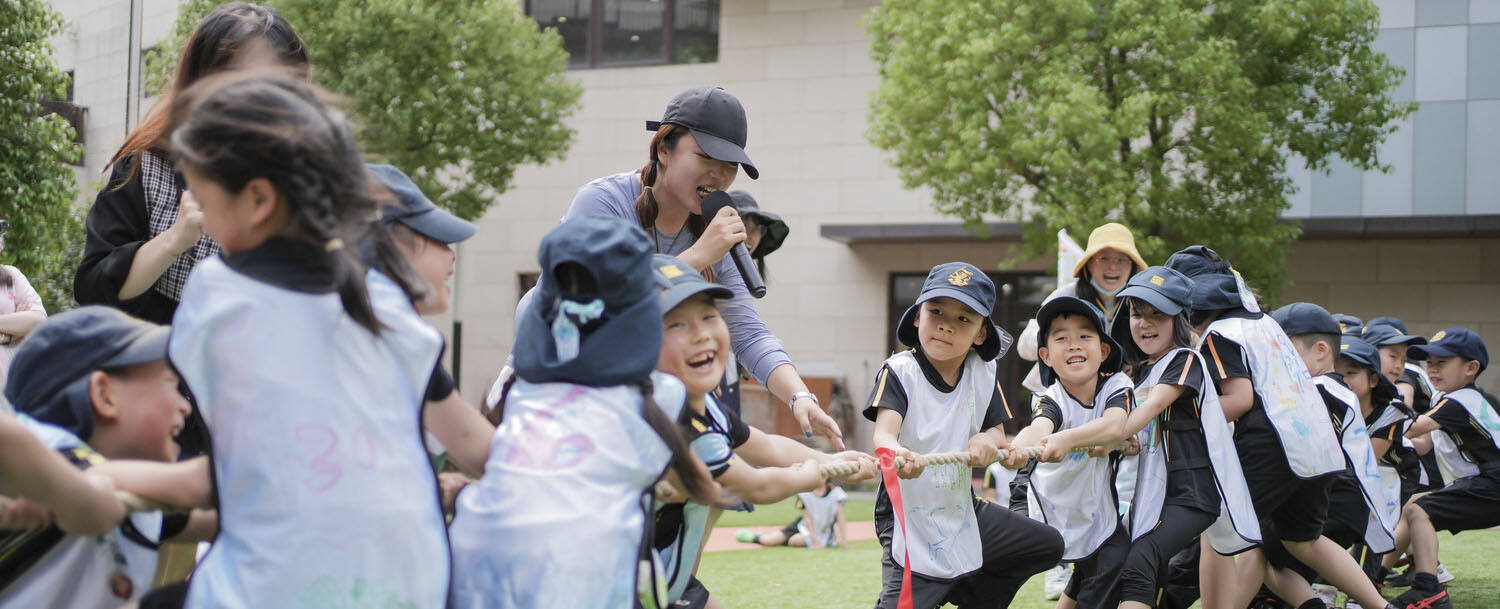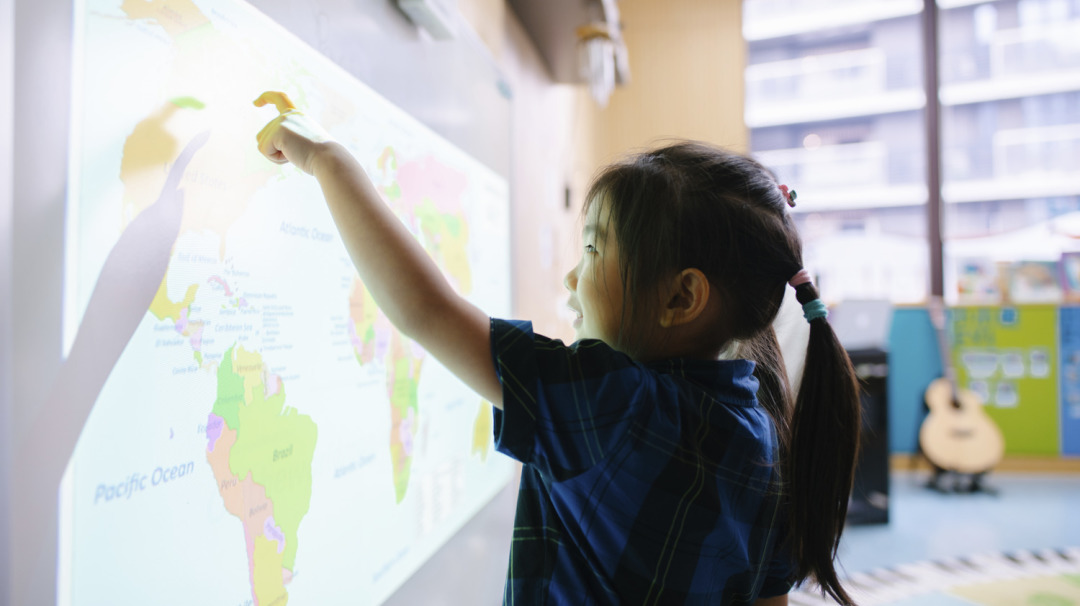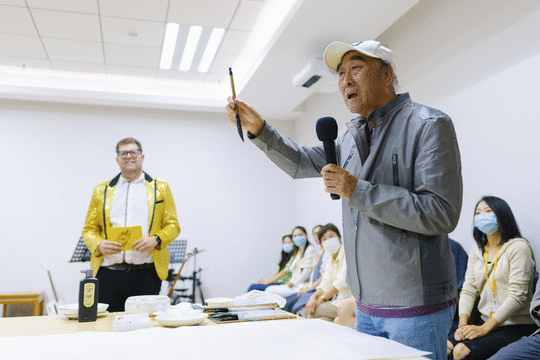
In our last post, Chinese Curriculum Coordinator Angela Gu pointed out that an immersive bi-cultural environment promotes children’s lifelong learning abilities.
Click to review
At Huili Nursery, language learning opportunities are everywhere
This week, her counterpart, English Curriculum Coordinator Rob Spillane explains why it is important to get started on a bi-cultural education as early as possible.
“Our children are faster than us in embracing new things,” says Rob, “because they gain language skills and life experience in an immersive learning environment at a young age. Besides, children have not developed any bias that some adults may have and it is easier and faster for them to accept and understand things from different cultures.”

Effective language learning, therefore, helps to build links between what they learn in the classroom and what they encounter in life outside of school.
Cultural immersion in the classroom
A young child’s brain is both absorbent and malleable. A child is soaking up all available information in their surroundings.
This information is, in turn, influencing how their brain develops. Thus, Rob explains, “When it comes to learning language and culture, the younger the better.”
Teachers play a critical role when our youngest Huili learners get acquainted with the world around them. A fully immersive language learning environment can make a dramatic difference in a child’s acquisition of a second language.
Rob employs numerous techniques to create such an environment.
Music is particularly effective. Singing a song like ‘The Wheels on the Bus’ together helps children to build associations between sound, visuals and meaning.
Role play is another. Teachers and pupils will act out pretend scenarios that they might encounter in real life.

Pupils then have an opportunity to practice what they learn while they gain fluency and confidence.
These activities can be engaging and accessible for any age learner and be used to support literacy learning or social interactions amongst many other areas of learning.
When children are involved in a fully-enveloped learning environment, children’s learning happens.

A EY4 pupil read the story ‘Picnic on the hill’ and on the weekend camping, she was inspired to naturally say: “I think picnic on the hill is a good idea.”
This is the power of the language environment.
Learning about diversity
We always like to say that we combine the best of the East and the West at Huili.
However, as Rob is quick to point out, “We do not want to divide our culture into Chinese and Western.”
Rather, a Huili Nursery education is an opportunity to learn about a global diversity that goes far beyond the English and Chinese-speaking world.
In class, this takes the form of singing English songs, solving Chinese riddles, tasting Korean rice balls and Japanese ramen or watching dance performances from India.

Artis a great entry point for learning about a different culture. It was one ofthe reasons we hold Huili Nursery Arts Week every year. Pupils learn about ourcommon humanity and what makes us all unique through a series of performancesand art activities.
Rob shares one telling anecdote with us.
A pupil’s grandfather made a painting entitled ‘Fun of Spring’ to the accompaniment of traditional Chinese music and dance. For Rob, this was an opportunity to expand the children’s vocabulary. So, he taught children to use simple English words to describe objects in the painting.

▲At the Arts Week, children appreciated performances of Mongolian, Indian and classical dances from many cultures
With understanding, we can learn to respect different cultures and have a good command of them.
We hope that in the future, Chinese culture and stories can be told in the world’s language through our young Huili pupils. In this process, they also can better understand the world culture and truly have an international perspective and independent thinking.